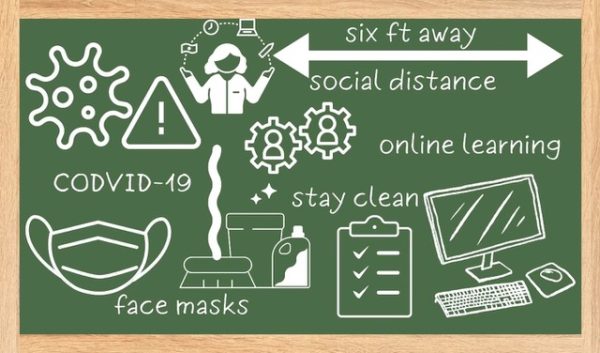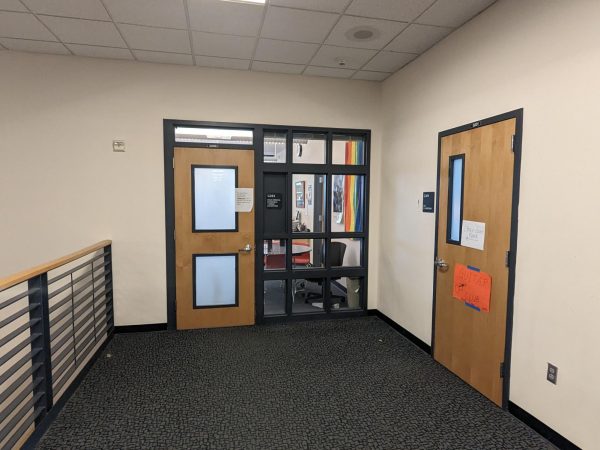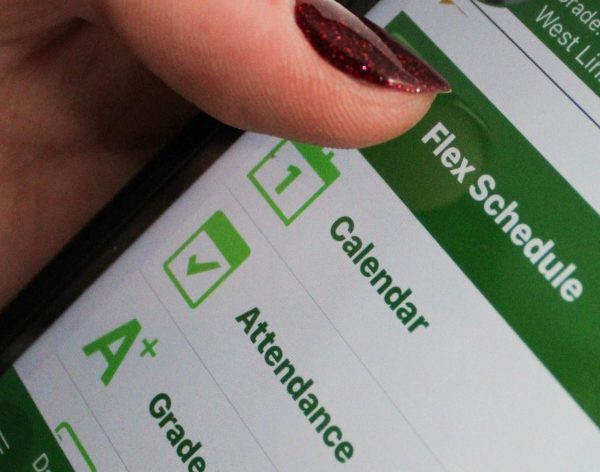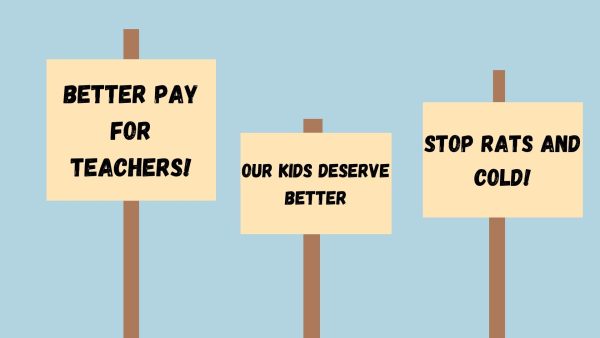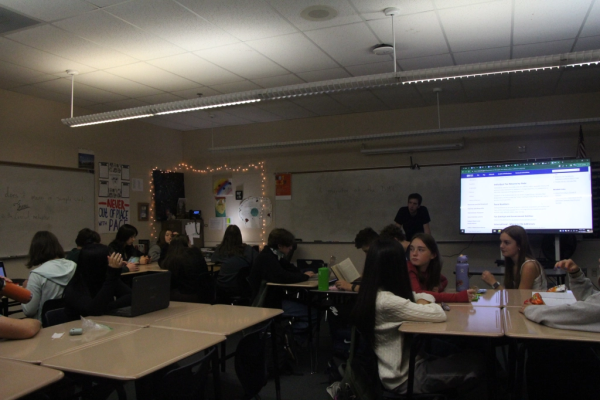Falling behind: are the new schedule updates helpful or harmful?
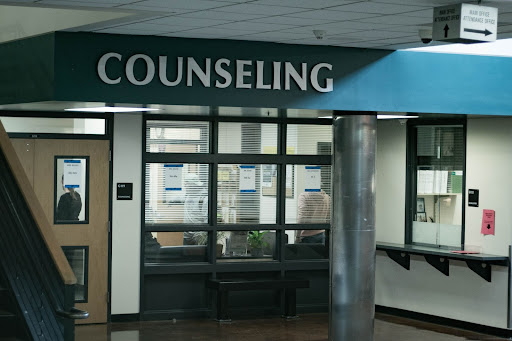
With all of the new scheduling changes, counselors help students forecast for their next year.
When word of an eight-period schedule for the 2023-2024 school year spread, my initial reaction was excitement. Similar to others who are affiliated with school music programs, it has always been a struggle for me to find ways to fit any other electives into my schedule. In order to stay involved, I essentially have an extra required class each year— throughout my high school career, my involvement in other electives I’m interested in has been reliant on my ability to take early period and summer school classes.
For me, the eight-period schedule would open up more space for electives so I could pursue my other interests further. But after hearing about some of the other changes to next year’s classes, I don’t believe that many of the schedule updates are a good decision.
While the new schedule initially appeared to be a chance for students to explore new interests and take more elective classes, there are caveats. Due to new Oregon law, the district is implementing a ‘homeroom’ period which will be mandatory for all students, all four years. This means that realistically, students only have an additional two semesters to fill each year.
With this homeroom period, they have added 1.5 credits to the graduation requirements. Throughout their four years, students will have to complete one credit of College and Career Planning, and a half credit of Personal Growth/Development. During this class, students are going to learn “real-world” skills. This will cover some things that aren’t traditionally taught in schools— how to manage finances, effectively spend money, and other skills needed for living on your own. The curriculum also includes career planning advice.
I don’t think the homeroom class is a bad idea— in fact, I think it’s a good addition to the curriculum and will be helpful in preparing students for life after high school. That being said, it leaves only two additional semesters open per year. While the new schedule is adding additional space, they have taken away some of the opportunities to obtain credits outside of the typical school day. Now, students’ chances to obtain required credits outside of the school day have been removed, and we only have two semesters a year to make up those classes.
One of the ways that students have gotten ahead historically was by taking some required courses through summer classes such as health and economics. With the new schedule change, the school will no longer be offering these summer courses, with the exception of trigonometry and credit recovery. These classes were previously offered over the summer as a fast-paced three to four week course.
I took health over the summer, and being able to do this allowed me to get the valuable information condensed into a few weeks rather than spending an entire semester in a classroom. This allowed me to take Geology the next year, where I would have otherwise had to take health. Already, I’ve gotten a lot of value out of Geology this year. I’m passionate about environmental science and am looking into it as a major and career path. It’s important to me to be able to take these environmental science classes in high school so I already have hands-on experience and qualifications for when I go into college.
Another opportunity removed is early period classes. In years past, grade level classes such as English or biology could be taken in the morning once a week— then classwork could be completed at home at the students’ pace. The only exceptions to this update are music classes such as Jazz Band, and physical education classes such as Weight Lifting and Court Sports.
On top of all of this, students who participate in sports through the school or other programs are no longer given physical education credits for participating.
In theory, with more space being added to the schedule, students will be able to take more electives. That being said, art and media publications classes that were previously a semester long are now a full year. I understand the thought process behind this completely, as it allows for a more thorough course. However, this will greatly reduce the number of kids who are able to take these classes. These classes that students could previously explore for a semester are now a greater commitment, as they take up one of your periods for the full year.
Extracurricular classes are not only important for students learning about themselves, but they’re also vital for students’ mental health. In my personal experience, having classes that are less rigorous gives me time to recharge and be present for other, more challenging classes. For the majority of students, taking eight classes with only one or two genuine elective spots will be tiring.
The district should not remove early periods and summer courses from the curriculum. As college becomes increasingly expensive, it is vital that students go into college knowing what their interests are, and how they can turn that into a career. The removal of these opportunities will impede on people’s ability to explore their interests, take new classes they are passionate about, and gain experience in various fields.
Click here to fill out ASB’s google form to vote for the name of the homeroom period.
Your donation will support the student journalists of West Linn High School. Your contribution will allow us to continue to produce quality content by purchasing equipment, software, and continuing to host our website on School Newspapers Online (SNO).

Finn Howell, Junior, is the coverage editor and is passionate about making students feel seen and recognized. He spends much of his time outside of journalism...


























![Game, set, and match. Corbin Atchley, sophomore, high fives Sanam Sidhu, freshman, after a rally with other club members. “I just joined [the club],” Sidhu said. “[I heard about it] on Instagram, they always post about it, I’ve been wanting to come. My parents used to play [net sports] too and they taught us, and then I learned from my brother.”](https://wlhsnow.com/wp-content/uploads/2024/03/MG_7715-2-1200x800.jpg)





![The teams prepare to start another play with just a few minutes left in the first half. The Lions were in the lead at halftime with a score of 27-0. At half time, the team went back to the locker rooms. “[We ate] orange slices,” Malos said. “[Then] our team came out and got the win.”](https://wlhsnow.com/wp-content/uploads/2023/10/IMG_2385-1200x800.jpg)





![At the bottom of the third inning, the Lions are still scoreless. Rowe stands at home plate, preparing to bat, while Vandenbrink stands off to the side as the next batter up. Despite having the bases loaded, the team was unable to score any runs. “It’s just the beginning of the season. We’re just going to be playing out best by June, [and] that’s where champions are,” Rowe said.](https://wlhsnow.com/wp-content/uploads/2024/03/IMG_3077-1200x900.jpg)



































































